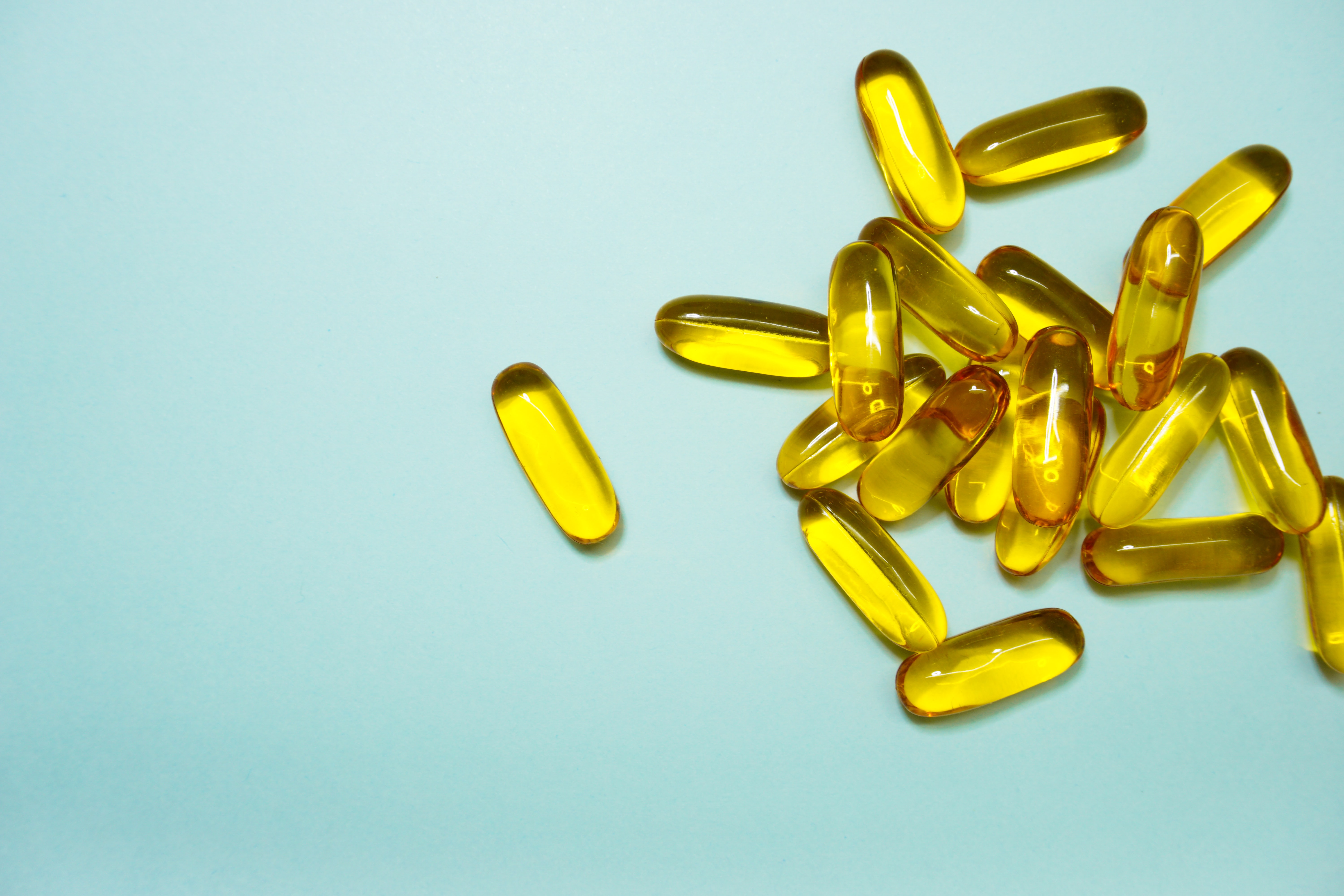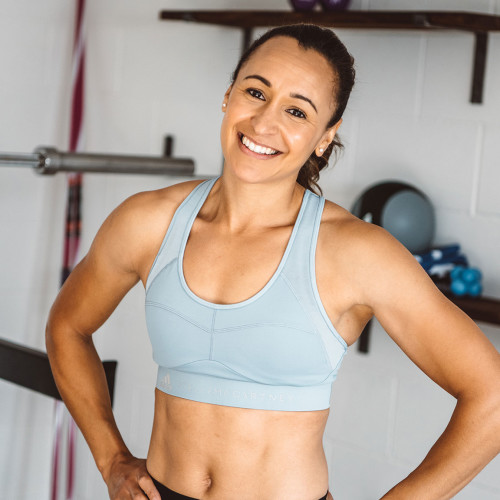7 of the best perimenopause supplements
9 months ago
Perimenopause9 months ago
Perimenopause
Dietitian Laura Clark shares the best perimenopause supplements you need in your life, plus the science behind them...
With a swathe of supplements emerging each year that claim to cure and improve menopausal symptoms and the industry itself expected to be worth $22.7 billion by 2028 , “supplements are seriously big business,” says Laura Clark, registered dietician. “The challenge is that it’s quite an unregulated area, so knowing where to start is often the biggest challenge.” Here, Laura shares 7 of the strongest options, with the research to back them up.
What is it?
Our body makes vitamin D when we’re exposed to sunlight and it’s also present in some foods like salmon, liver and egg yolks. Because we don’t tend to eat large amounts of these, our bodies sometimes need a boost in the form of a supplement – especially if you have darker skin or don’t spend much time outdoors.
Why take it during perimenopause?
“Vitamin D is one of the only supplements that we have good solid research for,” says Laura. “I’d recommend taking 10 micrograms a day over the autumn and winter months.” It helps to protect your bones and muscles, plus it helps to prevent diabetes, autoimmune diseases and heart and circulatory disease .
Emerging research also suggests that vitamin D can improve symptoms of depression and seasonal affective disorder (SAD), so it might be helpful to balance your mood when you’re perimenopausal. It’s also believed that higher doses of vitamin D can be beneficial when you’re postmenopausal.
Perimenopause symptoms it may help with:
Declining bone mass and low mood.
What is it?
“Magnesium has many roles within the body including muscle contraction, nerve transmission, formation of strong bones, immune and psychological function,” says Laura. “It also plays a key role in activating our parasympathetic nervous system – the one associated with ‘resting and digesting.’
Taking high doses of vitamin B6 supplements reduces feelings of stress, anxiety and depression
Why take it during perimenopause?
“Because of its role in muscle relaxation, magnesium is touted as a sleep aid.” Studies have also linked it to healthy cognitive function – potentially even protecting us from diseases such as Alzheimer's and dementia. So, it may help with the brain fog and forgetfulness that sometimes comes with perimenopause.
Perimenopause symptoms it may help with:
Low mood, brain fog and sleep problems.
What are they?
B vitamins play a key role in the functioning of our metabolic pathways when breaking down carbohydrates, fats and proteins. They’re important for our nervous system and may also help to prevent stroke, heart disease and dementia.
Why take it during perimenopause?
Research has found that our need for B vitamins might increase during menopause, as our body might not absorb them as well.
A UK study last year found that taking high doses of vitamin B6 supplements reduces feelings of stress, anxiety and depression. “So, taking a supplement may help with symptoms like mood swings and feelings of low mood,” says Laura.
Vitamin B-12 deficiencies are linked to fatigue and weakness, similar to some perimenopausal symptoms, so if you’re regularly running low on energy, it may be worth getting your vitamin B12 level checked to see if a supplement might be a good idea.
Perimenopause symptoms it may help with:
Feelings of anxiety and fatigue.
What is it?
“Calcium is a big player in supporting our bone health,” says Laura. As we get older, our bones absorb calcium less efficiently and together with our declining oestrogen levels, this causes lower bone density.
Why take it during perimenopause?
“It’s easy to up the calcium with your diet – dairy products, fortified dairy alternatives, sardines, leafy greens, beans, lentils and tofu are all great sources.” However, as our need for calcium becomes greater as we age, a supplement may help, especially if you’re opting for a plant-based diet.
Perimenopause symptoms it may help with:
Declining bone mass and an increased risk of osteoporosis and fractures.
What is it?
Omega-3 fatty acids provide your body with energy and help your cardiovascular and endocrine systems to work properly. We don’t make enough of them naturally, so it’s important to get them from food and supplements.
Why take it during perimenopause?
A recent study led by Harvard Medical School found that omega-3s reduced depressive symptoms and hot flushes in women during menopause, while another large review found that they may help to reduce night sweats, but more research in this area is needed.
Perimenopause symptoms it may help with:
Low mood, hot flushes and night sweats.
Women eating a plant-based diet rich in soy across 12 weeks helped reduce their hot flushes by 84%
What is it?
“Collagen is a protein found in our bones, muscles and skin,” says Laura. Because it helps to provide strength and structure in our cells, it can help with wound healing and gives elasticity to the skin. We lose collagen as we age and this is the main culprit for fine lines and wrinkles, while our declining oestrogen levels can cause our skin to thin and hair loss.
Why take it during perimenopause?
Taking a supplement could help to strengthen your hair, skin and nails when perimenopause hits, but there’s no robust research to support any wider health benefits. “Try it if you want to,” says Laura, “but without any real depth of research, be mindful that you could be wasting your cash.”
Perimenopause symptoms it may help with:
Dry, ageing skin.
What are they?
These are plant-based compounds that have oestrogen-like properties. You can find them in foods like strawberries, olive oil, nuts and seeds, and soy foods like soya milk and edamame beans. They’re also – handily – found in red wine and coffee.
Why eat more of them during perimenopause?
Some studies claim they reduce hot flushes, help to prevent osteoporosis and keep your heart healthy as you age. “The research around soy for reducing menopausal symptoms is very strong,” says Laura, “and that’s because isoflavones found in soya foods are the richest sources of phytoestrogens.”
A recent study by Washington School of Medicine found that women eating a plant-based diet rich in soy across 12 weeks helped reduce their hot flushes by 84%. Nearly 60% of them became totally free of moderate-to-severe hot flushes across the study period.
Perimenopause symptoms it may help with:
Hot flushes and osteoporosis.
“Whenever I talk to my clients about supplements, I’ll tell them to look at their diet and lifestyle first. But I’m also realistic. For a lot of perimenopausal women, because they are juggling busy jobs and lives, a healthy, balanced diet can be pretty hard to achieve, so supplementation can give you peace of mind and act as a bit of a safety net to support you with the things you need.”
“With so many out there to choose from, it can be hard to know which multivitamins are actually beneficial,” says Laura. “Some of my clients take menopause-specific multivitamins and feel a big difference in things like energy levels and post-exercise recovery.
“Generally, a multi vitamin and mineral supplement that’s providing a little bit of everything can be a backup if you feel that your diet isn’t balanced enough. But I’d always suggest taking a look at how you can improve your diet if you’re worried, even if it’s just little tweaks.”
It’s a good idea to talk to your GP about the options first and let them know when you’re going to add supplements into your diet. “Check that they’re not interacting with any medications you’re currently taking,” advises Laura.
“Then, try taking one alongside a healthy diet for three months and take a note of what you’re eating and how you feel over that time. If you feel like the supplement is making a positive difference, then carry on. If it isn’t, then it may not be worth the money.”
 Cycle syncing
Cycle syncing Perimenopause
Perimenopause Perimenopause
Perimenopause Perimenopause
PerimenopauseSign up to learn everything you need to know about CycleMapping, plus how you can live better and feel better through optimising your fitness to you.
This website uses cookies to ensure you get the best experience on our website. Learn more

Sign up for the very latest news on women's fitness, health and hormones, plus be the first to receive exclusive offers and extras